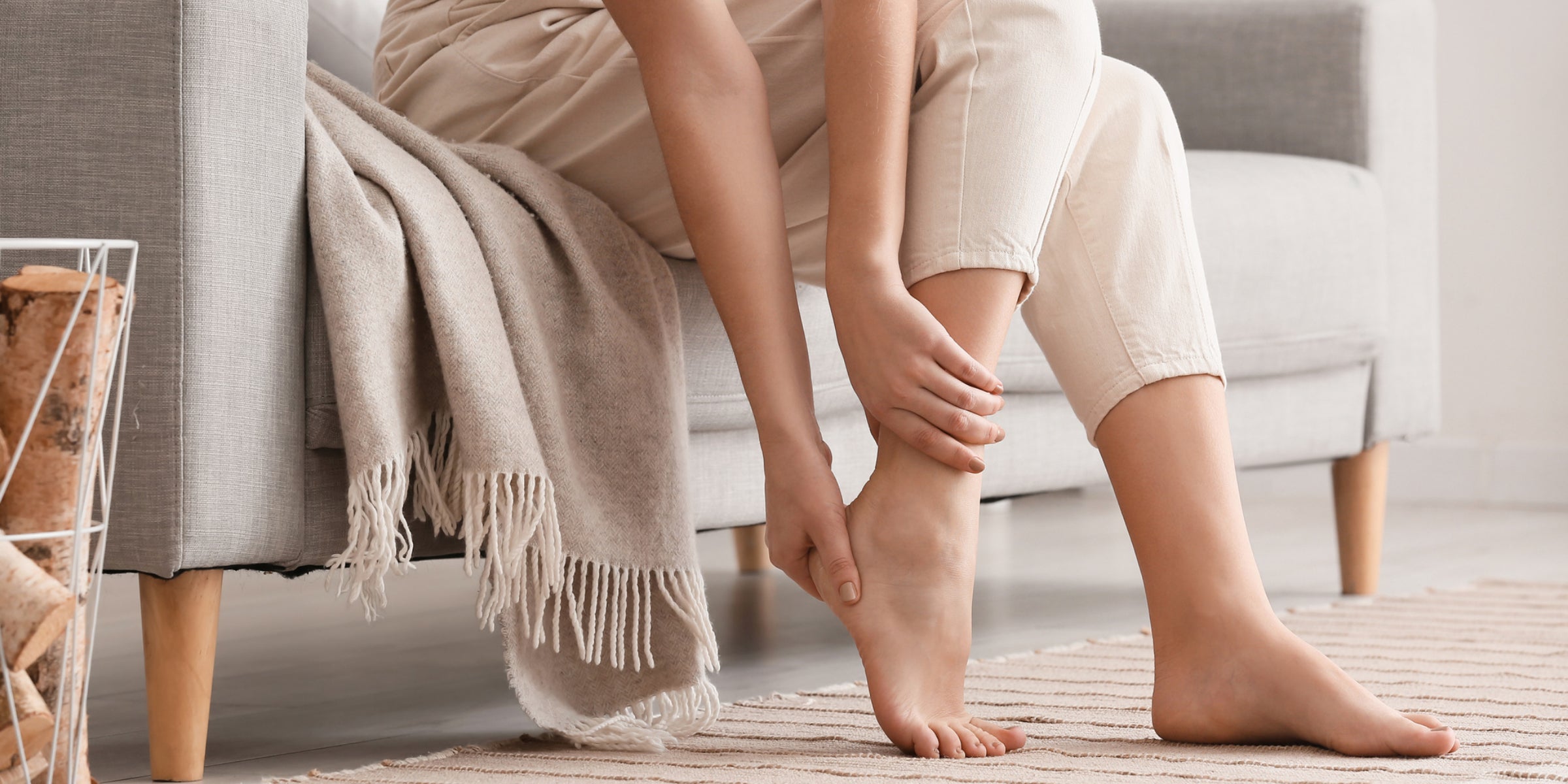Self-care has become a buzzword in the wellness community, but what exactly does it mean? At its core, self-care is about taking intentional actions to nurture and protect your physical, emotional, and mental well-being. It’s about recognizing and addressing your needs and making choices that support your overall health and happiness.
Self-care is not selfish or indulgent. By taking care of ourselves, we can boost our energy, mood, confidence, and resilience, and ultimately, our motivation to pursue our aspirations.
But what does self-care mean, and how can we practice it effectively? As self-care is not a one-size-fits-all concept, we will take you through the personal and dynamic process that involves finding out what works best for you in different situations and stages of life.
Why is Self-Care Essential?

Self-care may seem like a trendy buzzword, but it is actually a crucial aspect of maintaining our overall well-being. In fact, it is an essential component of a healthy and balanced lifestyle.
Taking care of ourselves is important for several reasons. First and foremost, it allows us to recharge and rejuvenate, helping us to manage stress and prevent burnout. When we neglect our own needs, we become more susceptible to physical and mental health issues, and we are less equipped to handle the challenges that life throws at us.
Self-care also plays a significant role in building resilience and enhancing our capability to cope with adversity. By taking the time to nurture ourselves, we become better equipped to deal with the daily demands of life, as well as any unexpected obstacles that come our way. Additionally, self-care can help to improve our self-esteem and self-confidence, as we prioritize our own well-being and make ourselves a priority.
Furthermore, self-care is essential for maintaining healthy relationships. When we feel good about ourselves and are able to manage our own needs, we are better able to support and care for others. This can ultimately lead to stronger and more fulfilling relationships with those around us.
Self-Care for a Thriving Social Life

Self-care is an essential practice in maintaining healthy relationships and a thriving social life. It is easy to get caught up in the demands and expectations of our partners, friends, and family members, often neglecting our own well-being in the process. However, in order to be a supportive and present partner, friend, or family member, it is important to prioritize self-care.
One of the key aspects of self-care in relationships and social life is setting boundaries. It is important to communicate your needs and limits to those around you, and to assertively enforce these boundaries when necessary. This can be as simple as setting aside time for yourself and communicating to your partner or friends that you need some solo time to rest and recharge. It can also involve saying no to social events or responsibilities that you cannot handle at the moment. By setting boundaries, you can prevent burnout and maintain a healthy balance between giving to others and taking care of yourself.
Self-care also involves prioritizing your mental and emotional well-being. This may include seeking therapy or counseling when needed, practicing mindfulness and stress-relief techniques, and surrounding yourself with positive and supportive people. It is important to address any issues or concerns that may be affecting your mental and emotional health, as these can have a significant impact on your relationships and social life.
Additionally, self-care in relationships and social life involves taking care of your physical health. This can include getting regular exercise, eating well, and getting enough sleep. When you feel physically well, you are better equipped to handle the challenges that may arise in your relationships and social interactions.
What About Mental and Spiritual Self-Care?

Taking care of our mental and spiritual well-being is crucial for living a balanced and fulfilling life. Implementing mental and spiritual self-care practices can help us feel more centered, grounded, and at peace.
One important aspect of mental and spiritual self-care is mindfulness. Mindfulness involves being present in the moment and paying attention to our thoughts, feelings, and bodily sensations without judgment. This practice can help us cultivate a greater sense of awareness and acceptance, leading to reduced stress and anxiety.
Another valuable practice for mental and spiritual well-being is meditation. Meditation involves quieting the mind and focusing on the breath or a specific mantra or visualization. This practice can help calm the nervous system, improve concentration, and promote a deeper connection to our inner self.
Engaging in activities that bring us joy and fulfillment is also an essential part of mental and spiritual self-care. This might include spending time in nature, practicing a creative hobby, or connecting with loved ones. These activities can nourish our souls and provide a sense of purpose and meaning in our lives.
Additionally, seeking out opportunities for personal growth and development can contribute to our mental and spiritual well-being. This might involve reading books or attending workshops on topics that inspire and uplift us, or seeking guidance from a therapist, spiritual teacher, or mentor.
Finally, prioritizing self-compassion and self-love is essential for mental and spiritual self-care. Being kind to ourselves, practicing forgiveness, and taking time for rest and relaxation are all integral components of nurturing our inner selves.
Creating a Personalized Self-Care Routine
Creating a personalized self-care routine is essential for maintaining your physical, emotional, and mental well-being. It involves finding activities and practices that make you feel good and help you to recharge and relax. Self-care is not selfish, but a necessary aspect of taking care of yourself so that you can be your best self for others. Here are some steps to help you create a personalized self-care routine.
Consider Your Individual Needs and Preferences
Reflect on the activities and practices that make you feel most relaxed and happy. Maybe it's spending time with loved ones, reading a book, practicing yoga, or taking long walks. By identifying what brings you joy and peace, you can tailor your self-care routine to fit your unique needs.
Schedule Self-Care Activities Into Your Daily or Weekly Routine
Dedicate specific time for self-care, just as you would for work or other obligations. This could be as simple as setting aside 30 minutes each morning for meditation or taking a relaxing bath before bed. The RENPHO Eyeris 3 is a voice-controlled eye massager that combines acupressure, heat, and cooling to provide a refreshing and relaxing experience for your eyes. It can help you relieve eye strain on a schedule with its 10/15/20-minute timer options, as well as improve your sleep quality and mood.
@alyssatubera RENPHO Eyeris 3 is parent approved!!! Great gift for those that need some stress-relieving and those with dry eyes
♬ Jazz Bossa Nova - TOKYO Lonesome Blue
You can use the Eyeris 3 to practice self-care by choosing from three massage modes, three heat levels, and a removable cooling gel mask, and customizing your massage settings with 18 voice commands. You can also enjoy soothing music or your favorite tunes via Bluetooth connection while you pamper your eyes. By making self-care a priority, you are more likely to stick to your routine and reap the benefits of it.
Be Open to Trying New Self-Care Activities
Your routine may evolve over time as your interests and needs change. Don't be afraid to experiment with different practices and find what works best for you. Whether it's trying out a new workout class, exploring a new hobby, or simply setting aside time for quiet reflection, being open-minded and adaptable can help you discover new ways to take care of yourself.
@renpho My honest thoughts and experience with the RENPHO Heating Pad 🤔 #unboxing #heatingpadhack #fyp ♬ original sound - RENPHO
Why not try and relax at home with the RENPHO Heating Pad? The large and soft heating pad can wrap around your back, neck, shoulders, abdomen, legs, or any other body part that needs some warmth and comfort. It can help you ease muscle pain, soreness, cramps, and stiffness, as well as improve blood circulation and relaxation. You can use the heating pad to practice self-care by selecting from 10 heat settings and three timer options, and adjusting the pad to fit your body shape with the snap fasteners and weighted edges. You can also wash the pad easily by detaching the controller and putting it in the washing machine.
Be Consistent
Remember to make self-care a non-negotiable part of your routine. It's easy to let self-care fall by the wayside when life gets busy, but prioritizing your well-being is crucial. Remember that taking care of yourself is not a luxury, but a necessity. By making self-care a regular habit, you can maintain a healthy balance in your life and feel more equipped to handle stress and challenges that come your way.
Renpho Health Tips
-

Show Your Body Love as You Embark on Your Fitness Journey
October 18, 2023
Read more >
-

Take Time to Reset: 5 Best Self-Care Practices This Summer
July 2, 2023
Read more >
-

Why Foot Massagers are a Must-Have for Self-Care
June 13, 2023
Read more >
-

What This Best-Selling Eye Massager Reminded Me About Self-Care
July 31, 2023
Read more >
-

Finding Stillness in Motion: How Running Helps Me Connect with Myself
December 18, 2023
Read more >



































